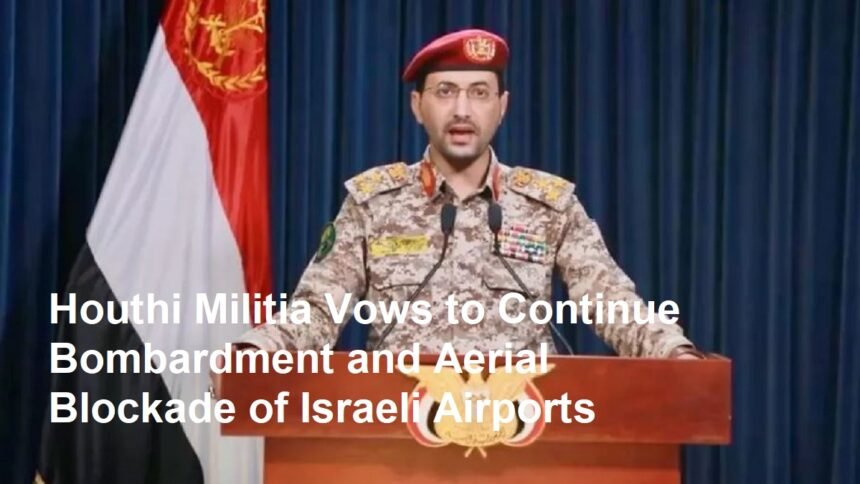Following a missile strike near Israel’s main international airport, Ben Gurion Airport, on May 4, 2025, Yemen’s Houthi rebel group has vowed to maintain and intensify its attacks on Israeli airports. The missile attack caused temporary suspension of flights and significant disruption to airport operations, raising tensions in the region.
The Missile Attack and Immediate Aftermath
On Sunday, May 4, 2025, the Houthis launched a ballistic missile that landed near the perimeter of Ben Gurion Airport in Tel Aviv. The strike damaged a road and a vehicle, injured several people, and forced the temporary closure of airport entrances and suspension of flights. Israeli defense systems attempted to intercept the missile but failed due to technical issues.
The attack marked a significant escalation in the Houthis’ campaign against Israel, which they claim is in solidarity with Palestinians amid ongoing conflicts in Gaza.
Declaration of a Comprehensive Aerial Blockade
In response to the attack and Israel’s military actions in Gaza, the Houthis declared a “comprehensive aerial blockade” on Israel. They pledged to repeatedly target Israeli airports, especially Ben Gurion Airport, aiming to disrupt air traffic and isolate Israel internationally.
Houthi military spokesperson Yahya Saree urged international airlines to cancel all flights to Israeli airports to ensure the safety of passengers and aircraft. Several major international carriers, including Lufthansa, Swiss International Air Lines, and others, have since suspended flights to and from Israel citing security concerns.
Strategic and Political Implications
The Houthis’ vow to continue their missile and drone attacks on Israeli airports represents a new front in the broader Middle East conflict. By targeting critical infrastructure such as airports, the Houthis aim to pressure Israel and its allies while demonstrating their military reach despite being based in Yemen.
Israel has condemned the attacks and vowed retaliation against the Houthis and their regional backers, particularly Iran. Israeli Prime Minister Benjamin Netanyahu stated that Israel holds both the Houthis and Iran responsible and promised a strong military response.
Regional and International Reactions
The missile strike and subsequent threats have heightened tensions across the region. International airlines have adjusted their operations, and governments are closely monitoring the security situation. The attacks have also drawn attention to the vulnerability of civilian infrastructure in conflict zones.
The United States and other Western countries have condemned the Houthi attacks and reiterated support for Israel’s right to defend itself. Meanwhile, the Houthis continue to frame their actions as resistance against Israeli aggression in Gaza.
In summary, the Houthi militia has vowed to maintain and escalate its bombardment of Israeli airports, declaring a comprehensive aerial blockade aimed at disrupting Israel’s air traffic and international connectivity. This development adds a new dimension to the ongoing regional conflict and raises concerns about further escalation.









